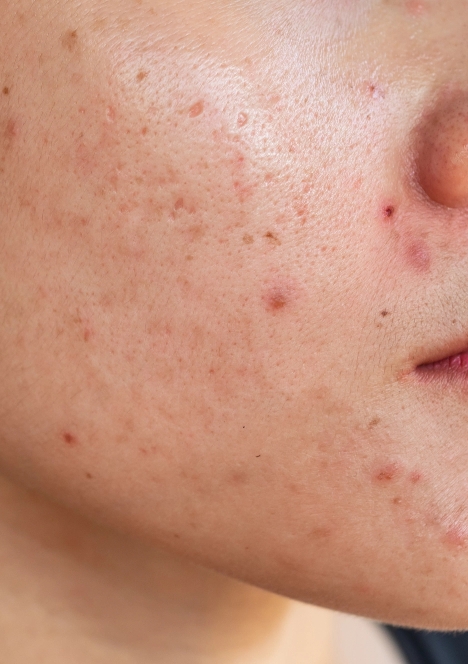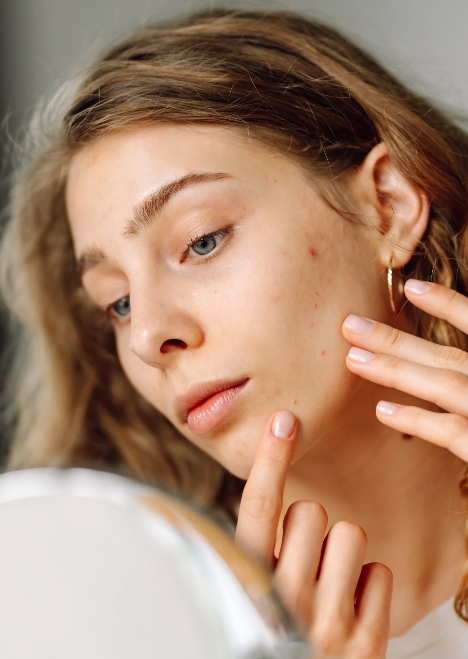Acne is often seen as a "temporary" or "cosmetic" issue, especially during adolescence. However, leaving it untreated can have real and lasting consequences—for both the skin and psychological well-being.
Why Even Mild Acne Shouldn't Be Overlooked?
Without proper care, acne can gradually worsen. What starts as a few isolated comedones or pimples may develop into a more widespread, inflammatory, and persistent form. Lesions can spread across the face, and also appear on the back or chest.
Although acne often improves after adolescence, it can persist into adulthood. Around 20 to 30% of adults continue to experience breakouts, sometimes chronically.
Scarring: A Real and Lasting Risk
One of the main risks of untreated acne is the development of permanent scars. When lesions are deep or long-lasting, they can leave marks in the form of indentations, raised areas, or pigmented spots.
These scars are often difficult to treat and may require specialized—and costly—procedures. Some studies show that nearly half of those with acne end up developing scarring¹.


The Psychological Impact of Acne
Acne isn't just a skin concern. Even moderate acne can have a significant psychological impact, especially among adolescents, including:
- Reduced self-esteem
- Social anxiety
- Depressive symptoms
Managing acne early on can help reduce its effects and improve overall quality of life.
Integrating Treatment Into a Skincare Routine
Starting treatment as soon as the first signs appear can help limit the progression of acne and reduce the risk of long-term complications. Integrating the right solution into a daily skincare routine is key.
Depending on skin type and sensitivity, a gentle solution is recommended. To learn more about how to apply Crystaderm effectively, see the article Should You Treat the Entire Acne-Prone Area or Just the Pimples?
Acne: Prevention Is Better Than Correction
Acne doesn't always resolve on its own. Letting it go untreated increases the risk of persistent scarring and preventable emotional distress. Addressing acne early helps slow the progression of lesions and reduce the risk of long-term consequences.
A treatment like Crystaderm, formulated without antibiotics or benzene, can be incorporated into a daily skincare routine to help manage mild acne. Thanks to its gentle antiseptic action, it supports cleaner skin and helps limit factors that contribute to breakouts—without disrupting the skin's natural balance.

